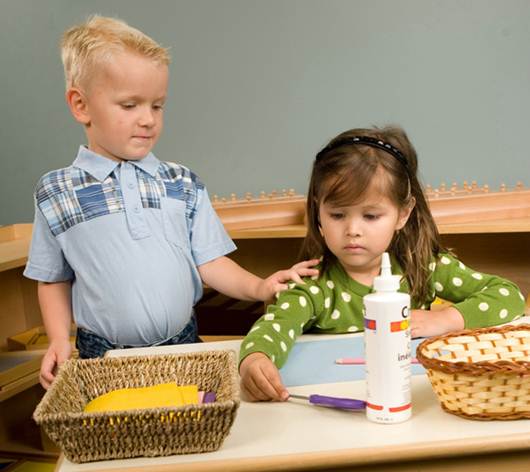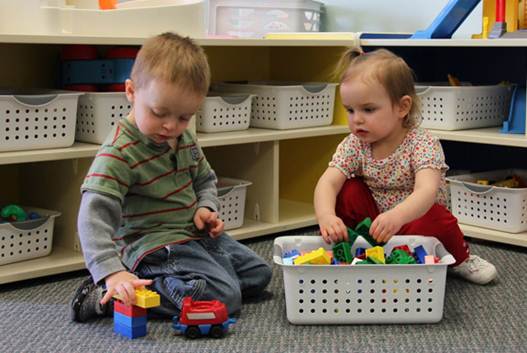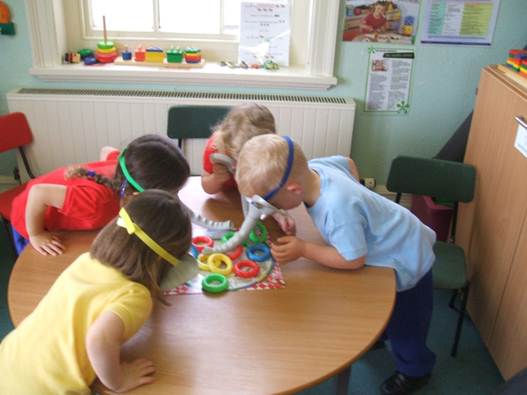She prefers to play alone, but we tell you
why plat dates are still important to your toddler.
Play is good for your toddler. Through it,
he learns about the world around him, develops new skills and gets the
opportunity to mix with others.

However, you might wonder if there’s any
point in arranging for him to play in the company of other one-year-olds
because it seems all they do is sit around and do their own thing. Don’t be
mistaken. Your toddler benefits a lot from these play dates, even though you
might not notice everything that’s going on at that time.
All by myself
Although your one-year-old has an
instinctive need to mix with others, the ability to be sociable develops
gradually:
Solitary play: from birth to one year, your infant likes to play on his own. He
prefers you beside him, of course, and will watch other children his age from a
distance. But he’s quite happy to sit and play by himself.
Parallel play: From around one to two years, his interest in his peers increases,
though he’s got yet ready to play with them socially. Although he still likes
to be in the company of others – and he plays beside them – he will still cling
to you when another child approaches.

Parallel
play
Cooperative play: From the age of two to three onwards, cooperative play begins to
emerge. Your child now wants to interact with his peers, even though he lacks
the necessary social skills. Fights often break out at this stage during play
activities.

Cooperative
play
The best way to help your toddler move
through these levels of play is by giving him the experience of playing with,
or alongside, his peers. It’s only through this sort of interaction that he
gradually learns how to become aware of, be interested in, and, eventually,
play sociably with others. That’s why play dates are so important for your
one-year-old.